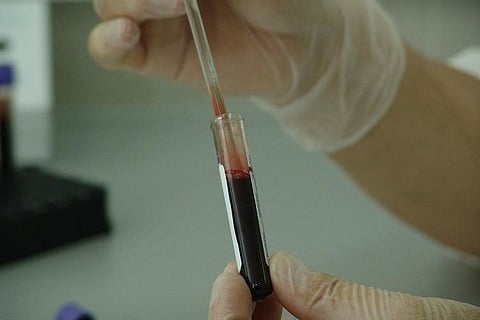

It seems like any other weekday at Bengaluru’s Victoria Hospital. A few people are standing against the stone wall, near the results counter, waiting for their test reports, which will then be taken to their doctors who will provide further treatment. It is here that staff have been working relentlessly to conduct accurate dengue tests for the hoards of people who come to the hospital complaining of fever.
“It is the season now, so for the past few months we have been getting a lot of people coming in daily who require the investigations for dengue,” said one staff member in the laboratory. While some of the people come in with prescription slips which ask for serology tests to be done, others require more specific tests to be done, to determine whether they have contracted the dengue virus or not.
While there are different tests used to determine whether a person has contracted the virus, not all the tests are looking for the same thing.
As explained by Bengaluru District Health Officer Dr Prakasha, there are certain things which doctors keep a lookout for, in the event they suspect dengue fever.
“At the public health centre (PHC) level, there aren’t any specific tests done for dengue. Should the staff be concerned that an individual has contracted the disease, they will ask for a routine blood investigation called a complete blood count (CBC). This will help determine if the platelet levels are within normal limits,” he says.
Should an individual’s symptoms point towards dengue and they are found to have a low platelet count, they are then referred to a district hospital where further and more specific tests can be done and the appropriate treatment given.
Doctors decide on what test to ask of a patient in order to check for dengue, based on the presenting history of a person and their main complaints, namely fever.
Dr K Kolandaswamy, the Director of Public Health in Tamil Nadu, explains that it is the presenting symptoms and history of an individual which allows for them to narrow in on the diagnosis.
“If a person has had fever for more than 5 days, we do not do the serology test. This test checks for the presence of the dengue antigen in the blood which is usually only seen within 5 days of being exposed to the virus,” he says. For those who come in after 5 days, a test specifically checking for the presence of certain antibodies against the dengue virus is opted for.
However, this isn’t a standard practice throughout. In Telangana, the Greater Hyderabad Municipal Corporation (GHMC) has introduced rapid testing kits as part of its Basthi Dawakhanas program.
“These tests can be used for screening purposes alone. A small blood sample, roughly a little more than a drop, is all that is required. It is taken and applied to the strip found in the rapid testing kit. If the strip changes colour, then it is indicative that the person may have dengue. So these individuals are then sent to a tertiary care centre or a district hospital where they can be further evaluated,” explains Basthi Dawakhanas program director Sai Varun.
At present, there are 65 such centres which offer these rapid test kits.
Dengue fever is caused by one of the five different strains of the dengue virus. Aedes aegypti mosquitoes are the carriers of the virus and transmit the virus to an individual via the mosquito bite. Symptoms can be seen anywhere between 3 days to 14 days of having been exposed to the virus. The most common of these include fever and joint pain. Headaches, muscle pain and general fatigue are also seen in those who develop dengue.